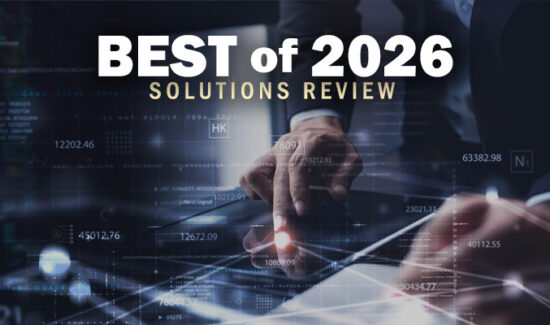What Will the AI Impact on Marketing Jobs Look Like in 2025?

The editors at Solutions Review have summarized some of the most significant ways AI has impacted marketing jobs, hiring, skillsets, and more.
One of the least surprising things someone can say in 2025 is that artificial intelligence (AI) has impacted marketing jobs. What is less clear is the specific impact AI has had on those jobs and whether marketers have cause for concern. As we see AI integrated into marketing operations at unprecedented levels, the form and function of a company’s marketing team will inevitably continue changing and evolving.
To keep track of those changes, the Solutions Review editors have outlined some of the primary ways AI has changed marketing, what marketers can do to remain agile during those changes, and what the future may hold for them and the technologies they use.
Note: These insights were informed through web research using advanced scraping techniques and generative AI tools. Solutions Review editors use a unique multi-prompt approach to extract targeted knowledge and optimize content for relevance and utility.
How Has AI Changed the Marketing Workforce?
In just a few years, the integration of AI into marketing has dramatically restructured the roles, responsibilities, and required skill sets in the marketing industry. This transformation has been freeing for many, as AI has streamlined their workloads and empowered them to focus on more specialized, high-value tasks and projects. However, it’s not uncommon for marketers to feel uneasy about the rapid adoption of these technologies, as they have already proven capable of rendering some tasks and roles nearly obsolete. Here are some of the job roles that have been impacted the most by AI:
Data Analysis
Traditional market researchers and marketing data analysts have arguably seen the most disruption from AI. Where these professionals were previously responsible for collecting and analyzing large data sets, LLMs can perform the same task exponentially faster than humans. Rather than relying on historical data and analyses, AI allows marketers and data scientists to forecast trends and customer behavior accurately. These predictive marketing capabilities make it easier and more cost-effective for businesses to anticipate market shifts, prepare strategies to respond to them, and allocate resources to the priority tasks.
Content Creation
Copywriting is another area that has been hit hard by the impact of AI. While generative AI likely won’t replace copywriters entirely, these tools are restructuring how marketers create blogs, social media posts, advertising copy, and product descriptions. New generative AI tools are hitting the market all the time now, and most of them can easily reduce the time and resources it takes to get brand-specific, personalized, and targeted content out the door.
HubSpot released a report in 2024 that outlines the specific productivity gains AI can provide to marketers. In their research, they found that:
- 68 percent of marketing leaders reported ROI on their AI investment.
- 75 percent of marketers say they use AI to reduce manual task time.
- 86 percent of marketers report that AI saves them 1+ hours a day by streamlining creative tasks.
With productivity gains like that, using AI and generative AI in marketing is unlikely to go away anytime soon. There’s even potential that, as these technologies advance even further, they could eliminate some of the industry’s entry or mid-level copywriting roles, leaving content creation to a mixture of senior directors and AI tools.
Customer Management
Thanks to AI, how marketers interact with customers has also undergone significant changes. AI-powered chatbots and virtual assistants can provide immediate, 24/7 customer support while gathering valuable insights on customer needs and, when needed, route customers to a human representative or even schedule a meeting on their calendar to follow up with an active or prospective customer. AI can also automate the creation of customer journey maps with complex pattern recognition tools, enabling customer management, service, and marketing teams to track, predict, and respond to more customer behaviors on more channels and with more efficiency than before.
While these roles are less likely to disappear, they will continue to evolve in response to AI technology developments, and it will fall on the human professionals to learn how to navigate and utilize these tools to maximize productivity and ensure consistent customer satisfaction.
The Emergence of AI-Centric Marketing Roles
The impact of AI on marketing is significant, but the most dramatic effect on the industry is the influx of new, AI-specific roles that these technologies have necessitated. These specialized roles range from AI content strategists to algorithmic targeting specialists and generative AI prompt engineers, and have grown rapidly. LinkedIn’s Skills on the Rise report says as much, reporting that AI literacy is the fastest-growing skill that “professionals are prioritizing and companies are increasingly hiring for.”
However, as AI systems become increasingly sophisticated, many functions requiring human specialists could become automated features within integrated marketing platforms. This could lead to a future where the first generation of AI marketing specialists we’re seeing enter the market could ultimately be transitional figures—bridges between traditional marketing and fully algorithmic approaches that require minimal human intervention beyond initial strategic direction.
AI-centric marketing roles will remain invaluable, and traditional marketers who don’t prepare themselves for those new roles will likely face fewer career prospects and mobility. The industry’s historical pattern of absorbing new technologies suggests that we could enter a 5-7 year window where hybrid capabilities are highly sought before a new status quo is established.
Like Mike Maynard said on Forbes, “AI is data for the masses, based on masses of data. Let AI gather all the data. Your success will be determined by whether you use it intelligently, ethically, and responsibly.” That was true when he said it in 2023, and it’s just as accurate today.
Upskilling for the Future
Upskilling has been a major buzzword the last couple of years, and with good reason. For marketers specifically, the necessity of developing AI competencies goes beyond conventional professional development—it represents an imperative that will determine career viability in the coming decade. For example, Christina Inge—author of “Marketing Analytics: A Comprehensive Guide and Marketing Metrics,” and instructor at the Harvard Division of Continuing Education’s Professional & Executive Development—says that AI might not take your job, but “It will be taken by a person who knows how to use AI. So, it is very important for marketers to know how to use AI.”
The specific skills marketers must develop go beyond basic tool proficiency. For marketers to remain competitive, they should pursue more sophisticated skills, including algorithmic literacy to understand how AI systems make decisions, data architecture expertise to ensure these systems receive appropriate inputs, ethical judgment to navigate questions of privacy and manipulation, and perhaps most critically, the ability to identify the boundaries where human judgment should supersede algorithmic recommendations. These multi-dimensional competencies cannot be acquired through conventional professional development paths or weekend workshops, but require more intentional, hands-on experiences.
For marketing leaders, this reality will demand a fundamental reconsideration of team structures, hiring criteria, and developmental pathways. The organizations that treat AI competency as merely another skill to be added to job descriptions will have a harder time navigating this transition than businesses that invest the time and resources necessary to reimagine their marketing departments as learning organizations explicitly designed to absorb, evaluate, and integrate emerging capabilities while preserving the human judgment that remains the core of marketing.
AI Will Augment Marketing Jobs, Not Replace Them
Narine Galstian—the CMO at SADA, an Insight company—sums up the impact of AI on marketing jobs like this: “To truly harness AI’s potential, marketers must adopt a human-centric approach. This means focusing on how AI can augment human capabilities rather than replace them. By combining the power of human creativity with the efficiency of AI, marketers can create truly innovative and effective campaigns.”
The AI impact on marketing jobs is an evolving, fluid thing. As clear as its repercussions have already proven to be, the continued development and integration of new AI technologies will result in the impact being an ongoing, ever-changing reality for professionals to reckon with. However, as dramatic as the effects might be, the expertise marketing professionals bring to the industry will never go out of style. They might need to pivot their skillsets to adapt to new or emerging needs, but the creativity of a human mind will remain an essential piece of marketing.



















